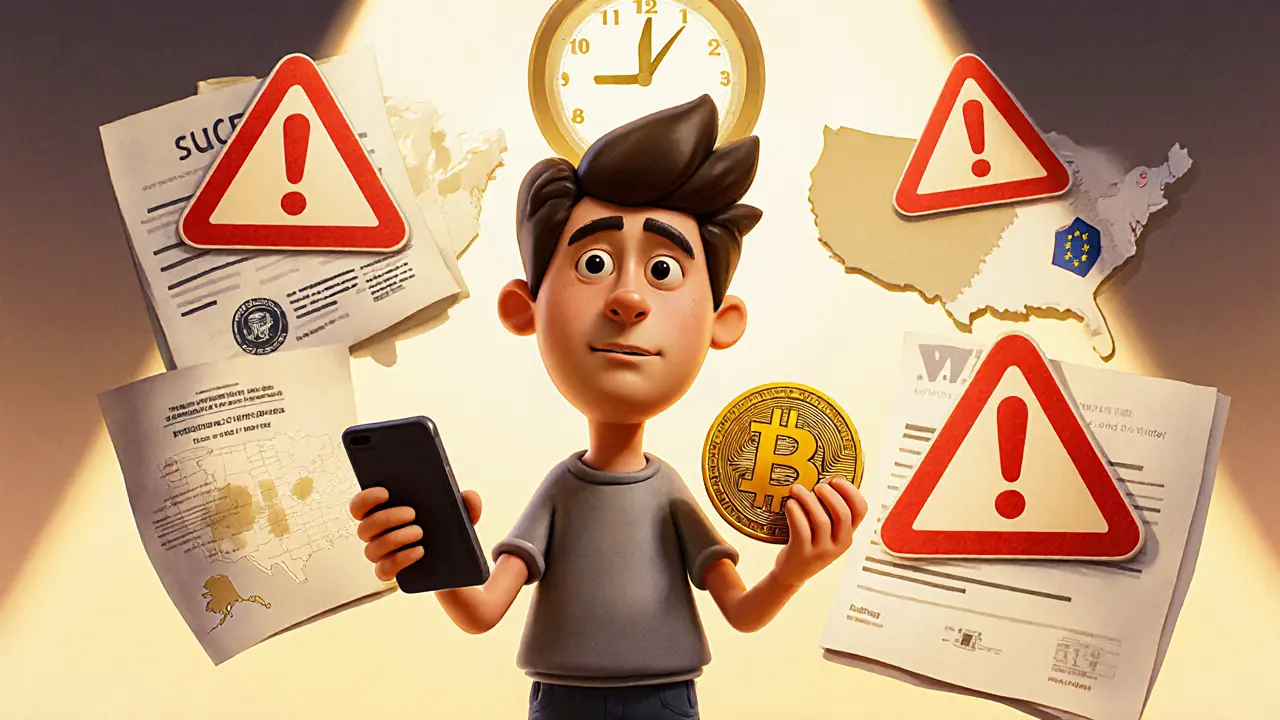Crypto Regulations: What You Need to Know About Global Rules and Risks
When it comes to crypto regulations, government rules that control how cryptocurrencies are bought, sold, taxed, or seized. Also known as digital asset laws, these rules vary wildly from country to country—and they directly affect whether you can trade, hold, or even mine crypto safely. One day you’re allowed to use Bitcoin as legal tender; the next, your exchange gets shut down and your funds frozen. There’s no global standard. What’s legal in Portugal might land you in jail in Angola.
Asset forfeiture, when governments take your crypto without a conviction. Also known as crypto confiscation, it’s happening more than ever. The U.S. alone has seized over $17 billion in Bitcoin, not because people broke the law—but because they used unlicensed platforms. In Angola, miners had their rigs seized and were jailed just for using electricity. Meanwhile, Russia bans unlicensed exchanges like Garantex and Exved, warning citizens that using them could lead to criminal charges. These aren’t rare cases. They’re the new normal. And it’s not just about bans. Crypto tax laws, how governments treat crypto gains as income or capital. Also known as digital asset taxation, they’re shaping where people live and where they trade. Portugal lets you hold Bitcoin for over a year tax-free. The U.S. taxes every trade. The U.K. blocks certain exchanges entirely. Your wallet doesn’t care about borders—but the law does.
Privacy coins like Monero and Zcash aren’t just technical experiments—they’re direct responses to these regulations. When governments track every transaction, people turn to tools that hide details. But that makes them targets. Exchanges like Blockfinex and SkullSwap get flagged not just for poor security, but because they don’t comply with KYC rules. Even airdrops like CHIHUA and SUNI are risky not because they’re fake—though many are—but because claiming them could trigger reporting requirements you didn’t know existed.
What you’ll find below isn’t a list of headlines. It’s a map. You’ll see how crypto seizures work in real cases, which exchanges are banned where, why Angola shut down mining, how El Salvador’s Bitcoin experiment collapsed, and what happens when you ignore local laws. These aren’t theoretical risks. They’re happening right now—to real people. Whether you’re holding, trading, or just curious, understanding crypto regulations isn’t optional. It’s the difference between keeping your assets—and losing them to a government seizure you never saw coming.
How Morocco's Underground Crypto Market Thrives Despite the Ban
Despite a 2017 ban, Morocco's underground crypto market is growing rapidly. Learn how Moroccans use Bitcoin, Ethereum, and stablecoins through P2P networks, VPNs, and OTC trading despite legal risks.
Staying Informed About Changing Crypto Regulations Worldwide
Crypto regulations are changing fast in 2025-with the U.S. easing enforcement, the EU enforcing MiCAR, and Asia leading innovation. Know what’s legal, where, and how to stay compliant without getting caught in the crossfire.

